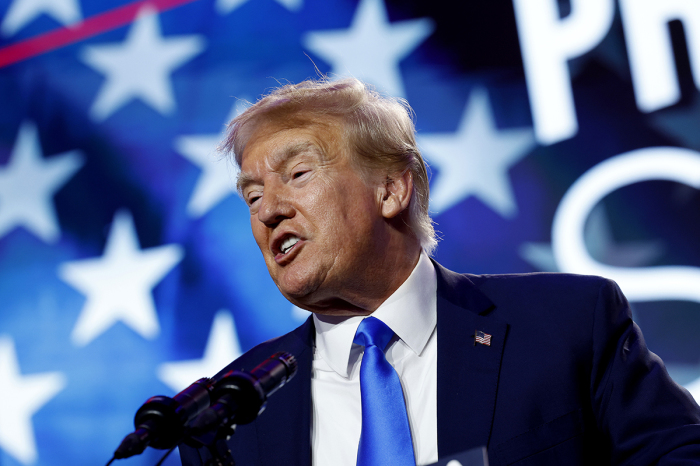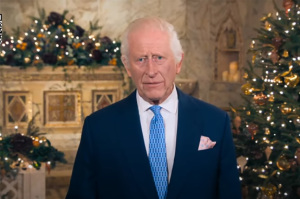Courts deciding whether to keep Trump off the ballot over Jan. 6

A trial has begun that could result in former President Donald Trump getting kicked off the presidential ballot in Colorado as opponents of the former president work to expand the effort to other states.
On Monday, the District Court for the city and County of Denver, Colorado, began hearing arguments in a case asking whether the 14th Amendment to the United States Constitution prevents Trump, the current frontrunner for the Republican presidential nomination, from appearing on the presidential ballot in the state.
Section 3 of the 14th Amendment states: “No person shall be a Senator or Representative in Congress, or elector of President and Vice-President, or hold any office, civil or military, under the United States, or under any State, who, having previously taken an oath, as a member of Congress, or as an officer of the United States, or as a member of any State legislature, or as an executive or judicial officer of any State, to support the Constitution of the United States, shall have engaged in insurrection or rebellion against the same, or given aid or comfort to the enemies thereof.”
A lawsuit filed last month by the watchdog group Citizens for Responsible Ethics in Washington on behalf of six Colorado voters contends that Trump’s actions on Jan. 6, 2021, where a mob stormed the Capitol to protest the certification of the 2020 presidential election shortly after the then-president held a rally on the National Mall raising concerns about voter fraud in the election, amounted to an “insurrection.”
A document released by Judge Sarah Wallace, who will preside over the trial, outlined some of the questions that she would like both sides to consider.
Specifically, Wallace asked the parties to address “how often and on what basis does the Secretary of State exclude candidates based on constitutional deficiencies,” “the process for drafting and approving the Major Party Candidate and Statement of Intent and who can revise or edit it,” whether or not Section 3 of the 14th Amendment applies to presidents, the meaning of the terms “engaged” and “insurrection” in the 14th Amendment and whether or not Trump’s actions arose to that level.
Wallace signaled her plans to continue the trial through the rest of the week. The lawsuit asks the court to issue an order “declaring that Trump is disqualified under Section 3 of the Fourteenth Amendment to the Constitution of the United States and is therefore constitutionally ineligible to appear on any Colorado ballot as a candidate for federal or state office.”
Additionally, the complaint asked the court to declare that any action by Colorado Secretary of State Jena Griswold “allowing Trump to access the 2024 Republican presidential primary election ballot or any future primary or general election ballot in Colorado will be ‘improp[er],’ C.R.S. § 1-4-1204(4), and ‘a breach or neglect of duty or other wrongful act.’”
The plaintiffs seek an “expedited hearing” to ensure that Trump is not placed on the forthcoming Republican presidential primary ballot in the state as well as November’s general election ballot.
According to The Green Papers, which keeps track of information about primary elections in the U.S., Colorado’s presidential primary will likely take place on March 5.
The Green Papers also cited a statement from Colorado Republican Party Chair Dave Williams, who vowed to “have a back up process to ensure all Republican presidential candidates, including President Trump, [will] have a fair chance to compete for our allotment of national delegates.”
Williams asserted that if the “lawsuit is successful, then we will push to have all of our national delegates selected through our caucus and assembly process and bypass any rigged presidential primary election entirely.” As Williams’ comment suggests, a traditional primary where voters show up to vote for their preferred candidate is only one possible way for a state to award delegates to presidential primary candidates.
Currently, Colorado will award all 37 of its delegates to a candidate in the Republican presidential primary if he or she wins more than 50% of the vote. If no candidate receives a majority, all candidates receiving at least 20% of the vote will receive delegates based on their share of the vote in the primary. In order to secure the Republican nomination, a candidate must receive at least 1,236 delegates.
In the general election, Colorado has 10 votes in the electoral college. While President Joe Biden won the state by double digits in the 2020 presidential election, some polls point to a closer race in 2024. An October poll of 477 Colorado registered voters conducted by Emerson College found that 42% planned to support Biden in a hypothetical matchup with Trump, while 38% would vote for Trump.
Trump’s absence from the ballot in Colorado alone, if the lawsuit is successful, will likely not have an impact on the primary or general election results. However, if similar lawsuits spread to other states and have an equal level of success, the efforts to keep the former president off the ballot could hinder his ability to reach the 270 electoral vote threshold required to win the presidency and the 1,236 delegates required to win the primary.
The liberal group Free Speech for People has already filed a similar lawsuit on behalf of Minnesota voters seeking to keep Trump off the ballot in their state. Like Colorado, Minnesota has 10 electoral college votes. The state has 39 delegates in the Republican presidential primary. The Minnesota Supreme Court is scheduled to hear oral arguments on the lawsuit Thursday.
In a court filing, attorneys for Trump denounced the effort to keep Trump off the ballot in Colorado as “a political lawsuit meant to prevent President Trump from standing for election and to block Colorado voters from having the opportunity to vote for him.” In addition to insisting that “Colorado statute provides no basis for barring a presidential candidate under the Fourteenth Amendment,” Trump’s attorneys maintained that “President Trump never advocated for or incited violence on January 6, 2021.”
Ryan Foley is a reporter for The Christian Post. He can be reached at: ryan.foley@christianpost.com





























